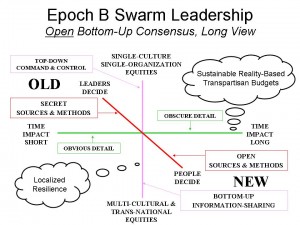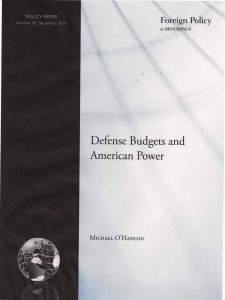
“American soft power is vanishing”
by jonl on January 6, 2011
Bruce Sterling and I are well into our annual State of the World conversation over on the WELL. Bruce, who’s traveled the world all his life and has been in unique situations (like his travels through Russia and Eastern Europe after the fall of the Iron Curtain), truly thinks globally, whereas I’m virtually global (via the Internet) though not as well-traveled. I tend to write from a U.S. perspective, which means less these days… sez Bruce,
Back in the 90s, when I was travelling in Europe, I used to get a lot of eager queries about the USA. What’s new over there, what are you doing with your lives and your riches and your technology, why is your government like that? This was considered a matter of urgency, and most Europeans I met, who were naturally from techie, artsy and literary circles, held views of America that were surprisingly like contemporary paranoid Tea Party views. They had interestingly wacky private theologies about the Pentagon, the CIA, Wall Street, the malignant military-industrial complex and so forth… Not that they ever bothered to find out much about the factual operation of these bodies. Stilll, they were sure that the USA really mattered.
Nowadays, the Europeans are just not all that concerned about Yankees. They don’t ask; they’re incurious about America, they are blase’. Being an American in Europe now is rather like being a Canadian, and it’s trending toward being a Brazilian.
…
American soft power is vanishing. Foreigners are much less interested in American television, movies, pop music… America once had a tremendous hammerlock on those expensive channels of distribution, but those old analog megaphones don’t matter half as much in today’s network society.
The USA has become a big banana republic; in other words, it’s come to behave like other countries quite normally behave. The upside is that we don’t get blamed for what happens; the downside is, nothing much happens. Decay and denial. Gothic High Tech.
Phi Beta Iota: the below comment in the larger dialog was especially interesting–the world is giving up on governments, the era of global hybrid networks that are evidenc-driven and amass more spending power than governments and corporations is nearing. Religions might–but with grave doubts–be a starting point, but only if they accept evidence-based sense-making in support of faith-based truth and reconciliation.
inkwell.vue.400 : State of the World 2011: Bruce Sterling and Jon Lebkowsky
permalink #16 of 73: gmoke (gmokecamb) Mon 3 Jan 11 18:19
One thing I see on the horizon and which I think will be the next step for 350.org is a kind of ongoing global brainstorm on local, practical solutions and adaptations to climate change. Since the international diplomats aren't going to do anything until 2020 and the incoming US Congress refuses to do anything constructive, those who want to address climate change will have to do it themselves. Online repositories of information where people can share what works where and what doesn't will help speed our climbing the collective learning curve and the replication of successful experiments.
There are some groups online which are trying to pull together parts of this puzzle but no central nexus that I know of. Yet.
Continue reading “Reference: American Soft Power is Vanishing + RECAP”





